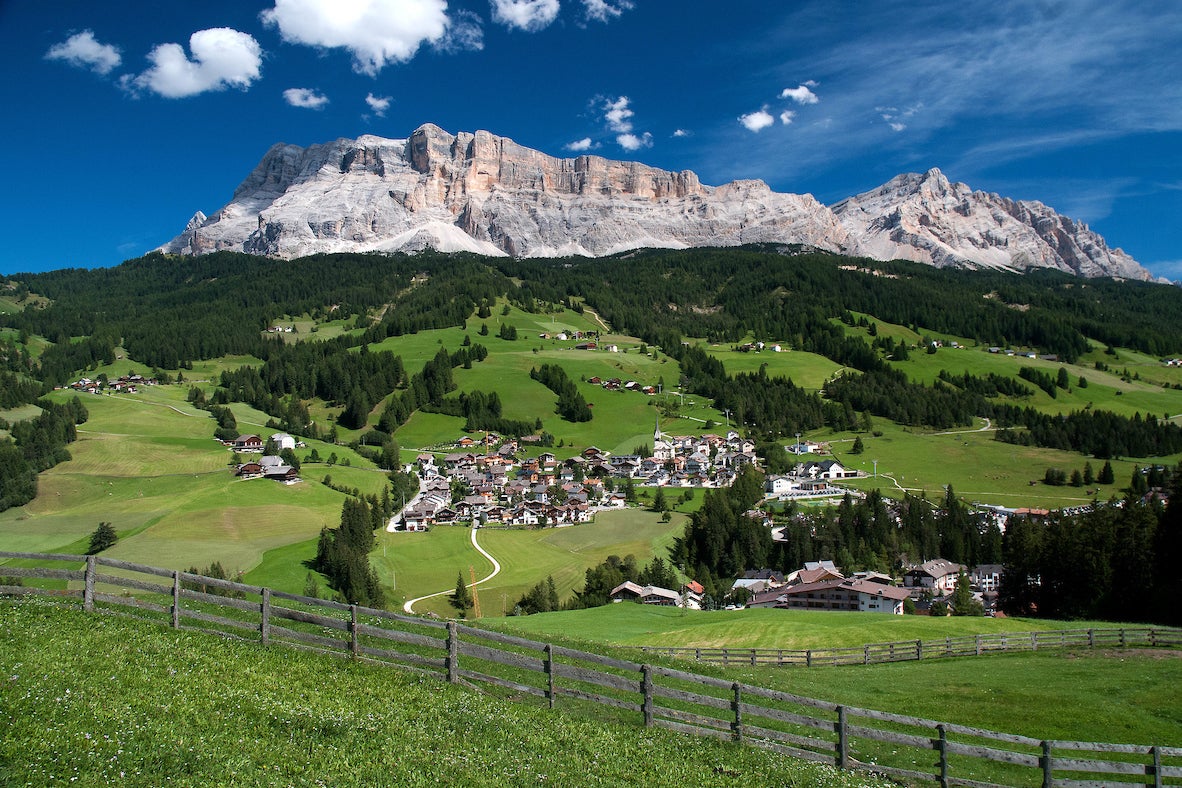Hills and mountains were the backdrop to many of my childhood holidays.
Summer half-terms were regularly spent in the Peak District: we climbed Kinder Scout and Mam Tor; trekked through Dovedale and Monsal Dale; and ate Kendal Mint Cake like real adventurers. The cottages we rented for those weeks would smell of Nikwax and be littered with maps and walking socks.
In the early years there was as much playing as hiking. Me and my brother Nathaniel, two years my junior, would spend hours hiding and seeking amidst the rocks and bracken at Robin Hood’s Stride; or panning for precious minerals in the streams that trickled through the woods. My best friend Ed came with us sometimes. The three of us would build hideouts and plot attacks on imaginary enemies.
Derbyshire’s hills are but small pimples in the grand scheme of global landscapes, however. That much became clear when we visited the Italian Dolomites, where sheer limestone walls rise thousands of feet above long, verdant valleys. In subsequent years we travelled to the Austrian Tyrol, its mountains a little less spiky but no less magnificent – or daunting.
There wasn’t so much playing to be had in these European Alps. We were there to conquer the terrain.
My brother and I were kept motivated by the prospect of being awarded a prize for our efforts. At the top of mountains and at key staging posts, ink stamps were kept in tin boxes: each stamp, added to our official green guidebooks, was worth a certain number of points, to be totted up at the end of the holiday and turned into a bronze, silver or gold medal.
I was triumphant; he was demoralised. I remain peculiarly guilt-ridden about it, nearly three decades on
In truth, I was happy to scamper up the nearest mountain, stamp or no stamp. My brother grew increasingly less keen. As time went by, collecting points didn’t provide the encouragement it had done when tinged with novelty.
My parents cheered us along – just as I do now with my own children. “Nearly there”; “this is the last steep bit”; “we’ll have a break when we get to the top”. I was probably less helpful, standard sibling rivalry pushing me to go faster, to reach the peak first, giving no quarter to my brother’s feelings. No wonder he wasn’t so positive about the experience.
One particular occasion sometimes comes back to haunt me. It was probably in Austria: I remember the setting though not the location. We were on the return leg of our walk for the day and Nathaniel was fed up. It wasn’t, in fairness, a particularly memorable route; perhaps I was feeling tetchy too.
How it came about I don’t know but my brother told me he would reach the top of the next rise before me. Off he went in a hurry but I didn’t join the race; he occasionally looked back, smiling when he saw I wasn’t following.
Assured that he would for once get the better of me, he stopped checking over his shoulder and slightly slowed his pace. As he got near the top I set off at a run, as quietly as possible, overtaking him 20 yards from the winning line. I was triumphant; he was demoralised. I remain peculiarly guilt-ridden about it, nearly three decades on.
Life, so it is said, is a race. Sometimes races are not worth winning.


Join our commenting forum
Join thought-provoking conversations, follow other Independent readers and see their replies
Comments